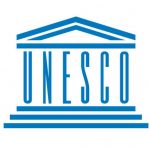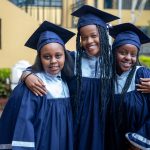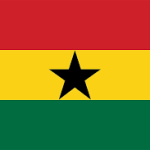The Open Society Inclusive Education Scholarship Programme offers awards to individuals from China, Czech Republic, Ukraine, and selected countries in Africa and Latin America for an 18-month master of education degree.
Application Deadline: 2nd December, 2016
Eligible Countries: Argentina, China, Czech Republic, Kenya, Malawi, Mozambique, Peru, Sudan, South Sudan, Tanzania, Uganda, Ukraine, Zambia, or Zimbabwe.
To be taken at (country): Syracuse University School of Education, New York, USA
Eligible Field of Study: Master of education degree.
About the Award: The programme’s objective is to provide education advocates and professionals with a foundation in the principles, values, and practices of inclusive education so that they will be equipped to lead reform of education policy and practice in their home countries.
With the knowledge and networks gained through the program, we expect that scholars will deepen their understanding of all aspects of inclusion and play active roles in devising and implementing inclusive practices and policies. The programme also includes a Fellowship
Fellowship: Fellows must uphold the academic standards of the host institution and undertake fulltime study for the program’s duration. Failure to maintain academic and professional standards as defined by the host university may result in dismissal from the program. Failure to follow the laws governing foreign students in the host country will result in dismissal from the program.
Type: Masters
Eligibility: The competition is merit-based and open to those meeting the following criteria:
- be a citizen and legal resident of Argentina, China, Czech Republic, Kenya, Malawi, Mozambique, Peru, Sudan, South Sudan, Tanzania, Uganda, Ukraine, Zambia, or Zimbabwe at the time of application
- have work experience in education with a demonstrated interest in advancing inclusive education
- have an excellent academic record with a bachelor’s degree in teaching, public administration/policy, anthropology, social work, psychology, or related field—degree must be awarded by application deadline
- have demonstrated leadership in the field of education
- be proficient in spoken and written English and able to meet university-designated minimum scores on standardized language tests
- be able to participate in an intensive academic writing program in Summer 2017
- be able to begin the graduate program in August 2017
- be able to receive and maintain visa or study permit to the United States
- demonstrate a clear commitment to return to home country to contribute to advancing inclusive education in their national contexts
The program does not discriminate on the basis of age, race, color, sex, religion, sexual orientation, or disability. Candidates with disabilities and those from marginalized communities are particularly encouraged to apply.
Selection Process: Competition is merit based, and selection is made on the basis of academic excellence, professional aptitude, leadership potential, and proven commitment to work to advance inclusive education in the home country. Selection proceeds as follows:
Preliminary Selection and Testing: Applications are first reviewed by representatives from the regional program administration, host university consortium, and Open Society Foundations. Applicants chosen to continue in the competition as semifinalists are required to take an official TOEFL or IELTS, the costs of which are covered by the program. Most participating universities require a minimum TOEFL of 90-100 (Internet-based exam) or IELTS of 6.5.
All applicants should research local options for TOEFL or IELTS testing to ensure results are available by February 2017. Applicants with disabilities should contact the testing agency as early as possible to make the arrangements for any necessary accommodations during testing.
Interviews and Final Selection: Semifinalists are interviewed by representatives from the Open Society Foundations, host universities, and other experts. The interview panel then recommends candidates for finalist status and subsequent university placement based on the quality of the written application, interview evaluations, and standardized test results.
University Placement: Finalists must be officially admitted to the host university program before becoming an official program grantee and being offered an award. Upon receiving the university placements, students are responsible for securing required visas for both the summer school and for the host university.
Number of Awardees: Not specified
Value of Scholarship: The fellowship provides:
- tuition and mandatory university fees;
- monthly stipend for room, board, and other living expenses;
- program-related travel;
- accident and health insurance during the program;
- funds for educational materials and professional development;
- all costs associated with pre-academic summer program and annual conference;
- support for students with disabilities to obtain reasonable accommodations necessary for participating in the program of study.
- The fellowship does NOT provide funding for dependent family members.
Duration of Scholarship: 18 months
How to Apply: For further details, see complete guidelines and submit an application online, or contact the appropriate regional coordinator below.
Residents of Kenya, Malawi, Mozambique, Sudan, South Sudan, Tanzania, Uganda, Zambia, Zimbabwe
Mr. Jehoshaphat Njau
Centre for Human Rights
Faculty of Law, University of Pretoria
Pretoria, 002, South Africa
Tel: +27 (0) 12 420 6345
Email: jehoshaphat.njau@up.ac.za
Website: chr.up.ac.za
Visit Scholarship Webpage for details
Award Provider: Open Society Foundation








